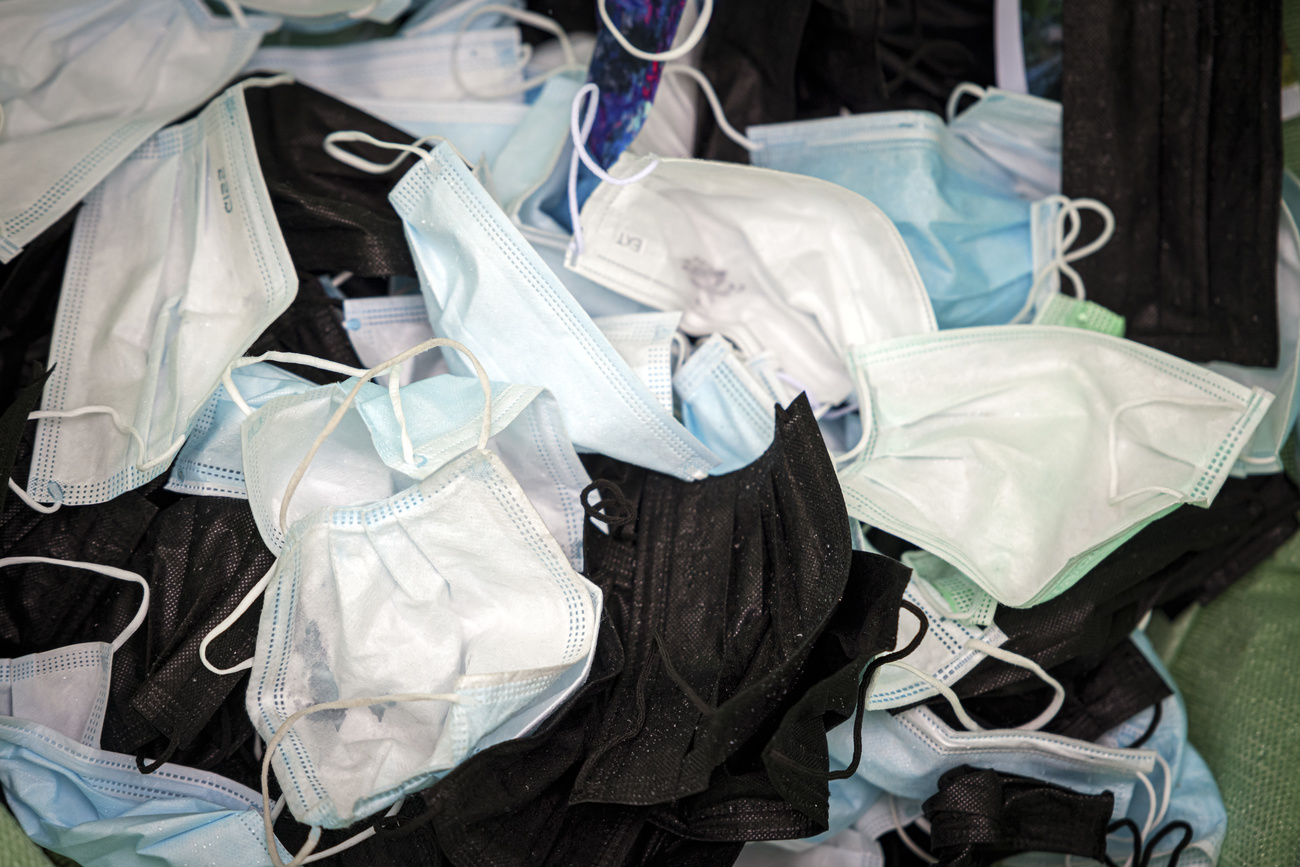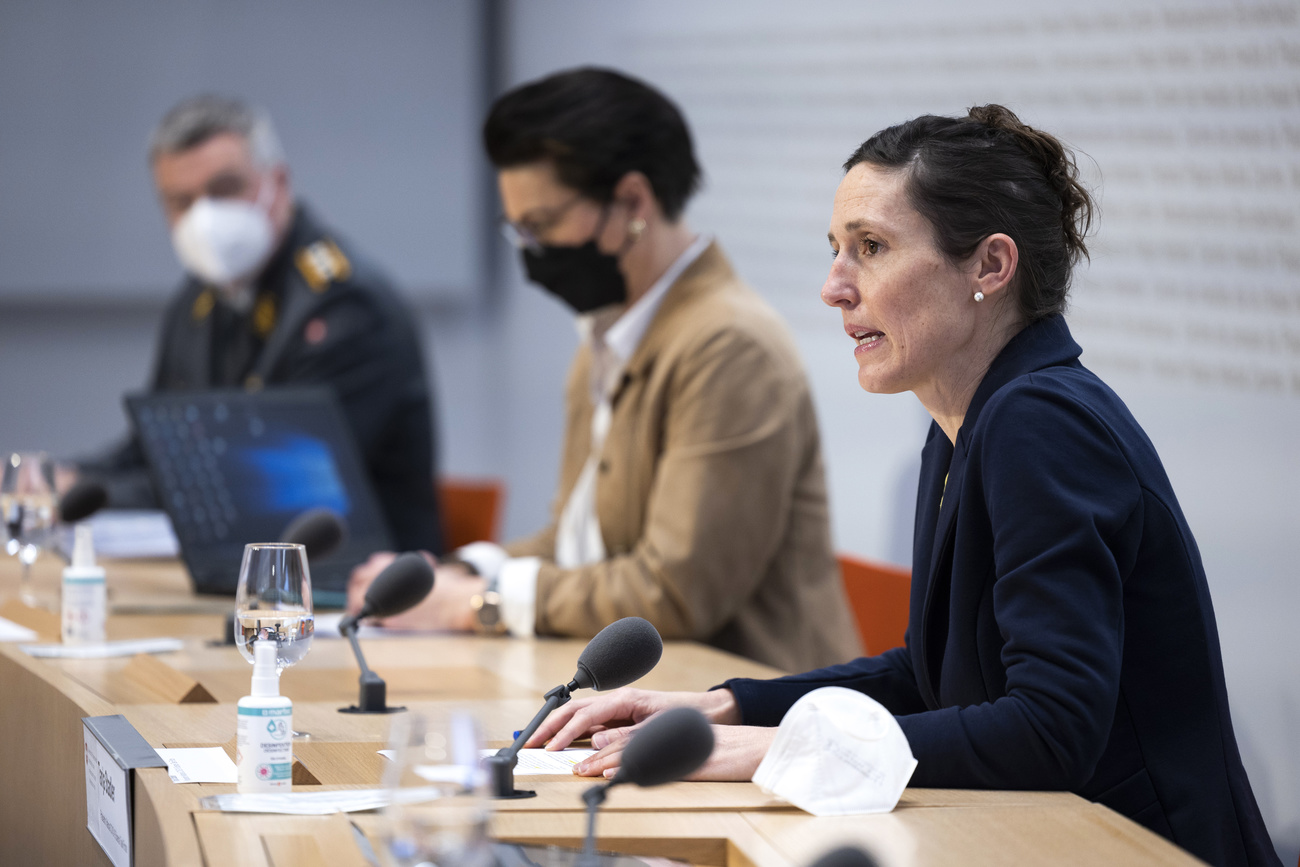
Covid: 140 million masks set to expire this year

The Swiss government is sitting on a mountain of hygiene masks, bought for the Covid-19 pandemic, and is now desperately looking for alternative uses so they don’t have to be destroyed, according to the SonntagsZeitung.
Some 180 million FFP2 and hygiene masks worth around CHF130 million ($140 million) are stored in the army pharmacy warehouses, the paper reportedExternal link. Almost 140 million of them will expire this year.
The figures reported by the SonntagsZeitung were provided by the army pharmacy at the beginning of the year.
According to the newspaper report, the government is trying to sell the masks at market prices. The government does not destroy good quality products, the army said. It added that even if the material reaches its expiry date, alternatives for further use are still being sought, or attempts will be made to extend the expiry date.
However, the army said it disposed of expired and unusable masks. It was unable to give an indication of how many protective masks with an expiry date of 2023 could be recycled or reused.

More
Masks will become a common sight, says Covid taskforce head
Shelf life
So far, the government has had to dispose of 2.2 million hygiene or FFP2 masks because of their expiry date. These had been intended for troop deployments and were worth CHF1.13 million, the army said.
In addition, the army pharmacy had recalled and destroyed about nine million masks as a precautionary measure because mould had been suspected. However, these were masks from the time of the bird flu outbreak, when about 30 million masks had been bought.
According to the army, the masks usually have a shelf life of two to five years. The materials are subject to natural ageing, so that over time the rubber bands become brittle or the filter performance of masks with filters is reduced.
Since April 1, 2022, there have been no pandemic restrictions in Switzerland, including the requirement to wear a mask in public transport and health facilities.

More
Coronavirus: the situation in Switzerland

In compliance with the JTI standards
More: SWI swissinfo.ch certified by the Journalism Trust Initiative




























You can find an overview of ongoing debates with our journalists here . Please join us!
If you want to start a conversation about a topic raised in this article or want to report factual errors, email us at english@swissinfo.ch.